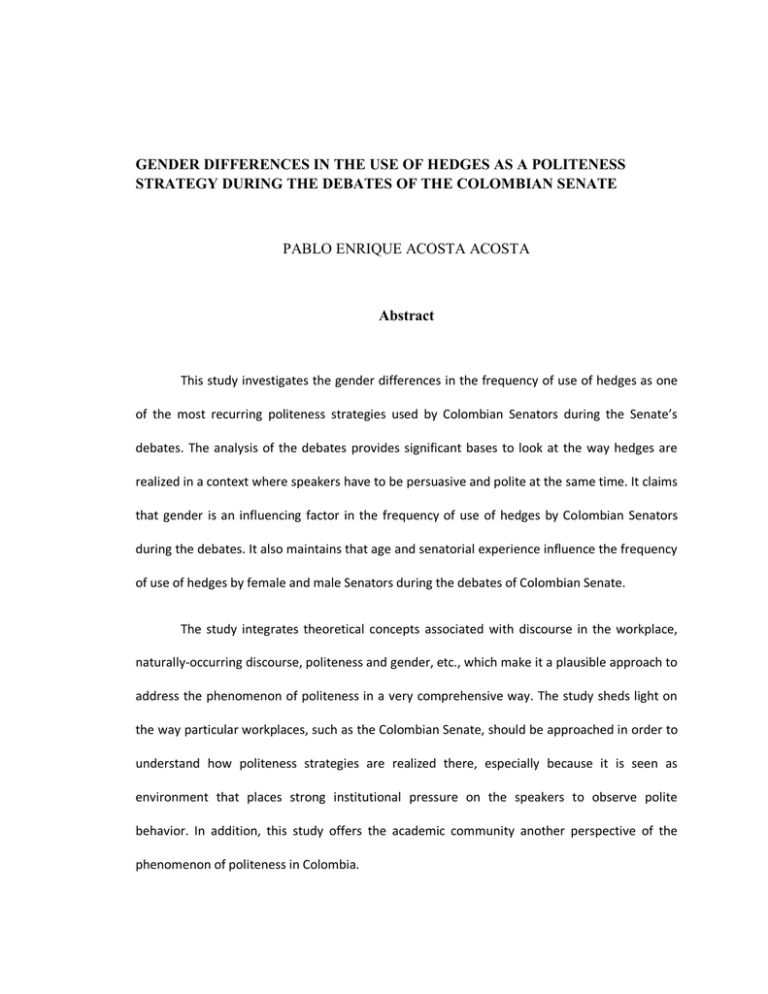GENDER DIFFERENCES IN THE USE OF HEDGES AS A POLITENESS
advertisement

GENDER DIFFERENCES IN THE USE OF HEDGES AS A POLITENESS STRATEGY DURING THE DEBATES OF THE COLOMBIAN SENATE PABLO ENRIQUE ACOSTA ACOSTA Abstract This study investigates the gender differences in the frequency of use of hedges as one of the most recurring politeness strategies used by Colombian Senators during the Senate’s debates. The analysis of the debates provides significant bases to look at the way hedges are realized in a context where speakers have to be persuasive and polite at the same time. It claims that gender is an influencing factor in the frequency of use of hedges by Colombian Senators during the debates. It also maintains that age and senatorial experience influence the frequency of use of hedges by female and male Senators during the debates of Colombian Senate. The study integrates theoretical concepts associated with discourse in the workplace, naturally-occurring discourse, politeness and gender, etc., which make it a plausible approach to address the phenomenon of politeness in a very comprehensive way. The study sheds light on the way particular workplaces, such as the Colombian Senate, should be approached in order to understand how politeness strategies are realized there, especially because it is seen as environment that places strong institutional pressure on the speakers to observe polite behavior. In addition, this study offers the academic community another perspective of the phenomenon of politeness in Colombia. The results of the analysis show that there are not significant differences in the frequency of use of hedges between female and male Senators. In other words, we find that the number of hedges used by males and females is similar, statistically speaking. They also show that there are no significant differences related to the number of words uttered by the subjects neither as a whole group nor as two independent groups (classified by gender). Finally, there is a correlation between the frequency of use of hedges and the age of the Senators and the Senators’ number of periods in the Senate,




